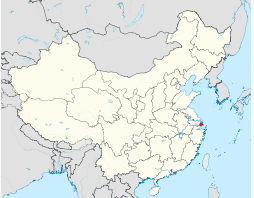Does High Stakes Testing Produce Students Who are “Study Machines?”
According to Emma Vanbergen, Shangahi-based study abroad director for BE Education, a company that places Chinese students in British schools and universities, it’s not surprising that Shanghai students are rated at the top of PISA World League Standings.
Why does she think so?
She says that the city schools are the most competitive in a country (China) where getting high scores on exams is the goal of education.
She indicates that the only measure that schools use to enable students to gain entry to the next level of education is a test score. Nothing else.
And the higher rank of a school, the more difficult it is for students to meet the entrance requirement (test score). She explains, that starting at a very young age, students go to school “in an endless cycle of learning, preparing for, and taking exams.
Because of her role in placing students for study abroad experiences in British schools and universities, she has some insight into the nature of Shanghai students. Not surprisingly she says that the best students, that is those that carry around the top scores on achievement tests, are “not in fact super clever, great thinkers, or future academics.”
She says that
They are simply extremely hard-working study machines who memorize and churn out answers for tests in minutes. They spend all their time on study, revision, homework, “pre-study” (a term I’d never encountered until arriving in China), learning test techniques, and taking practice papers.” (Edmma Vanbergen, Comments & Features, The Daily Telegraph, December 5, 2013)
According to Ms. Vanbergen, parents and teachers conspire inadvertently by bearing any cost to make sure their children get what is needed to score high marks on tests, and teachers are forced into the system because of the incentive of the “pay-for-student performance” for bonuses and promotions.
In China, the curriculum focuses on mathematics, science, Chinese and English. Other subjects such as history, the arts, physical education, and the social sciences are not emphasized. Chinese education is geared to the PISA exams, which test only mathematics, science and reading (English).
Ms. Vanbergen also tells us that the students who stay in school at age 15 in Shanghai schools are the best test takers. Perhaps this sets them up for super performance on the triennial PISA tests.
She also reminds us that Shanghai is not representative of the system of Chinese education. In her view, she says:
The super competitive, overpopulated, high-pressure nature of the schools, coupled with the significant financial backing of test-fixated parents, means students are conditioned from a young age to out-perform the competition in tests. In that one respect–outperforming the majority of the world’s students in tests, in this case PISA–the system is clearly a great success. (Emma Vanbergen, Comments & Features, The Daily Telegraph, December 5, 2013)
According to American newspapers and articles on blogs such as Education Week, US education stalls as other nations make gains. In the eyes of the American press, and officials at the US Department of Education (ED), there is an even greater need for the standards-based test oriented curriculum of the Common Core.
If we are to accept the analysis of Ms. Vanbergen, then the solution to high scores on tests such as PISA is to turn students into “Study Machines.”
Is this the aim of an education in a democracy? What do you think?



You must be logged in to post a comment.